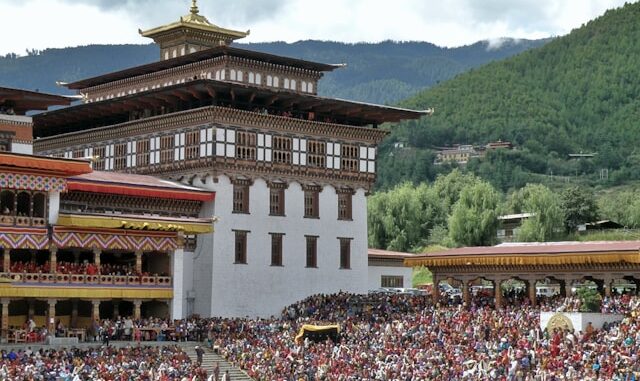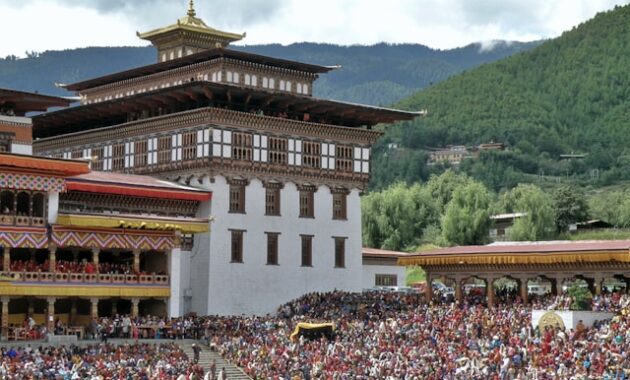
Introduction: Bhutan – A Model of Sustainable Living and National Happiness
Nestled in the eastern Himalayas, Bhutan is more than just a scenic wonder—it is a global example of sustainable development and well-being. Unlike nations that measure progress through GDP alone, Bhutan pioneered the concept of Gross National Happiness (GNH), aligning ecological preservation, cultural values, good governance, and equitable socio-economic development. As climate change, mental health crises, and environmental degradation plague the modern world, Bhutan’s holistic and sustainable lifestyle offers invaluable lessons for a more balanced and fulfilling way of life.
Gross National Happiness: A Revolutionary Development Paradigm

Gross National Happiness is not just a slogan; it is enshrined in Bhutan’s constitution and serves as the nation’s central policy framework. The GNH index encompasses four key pillars:
- Sustainable and Equitable Socio-Economic Development
- Environmental Conservation
- Preservation and Promotion of Culture
- Good Governance
By emphasizing collective well-being over material wealth, Bhutan has reshaped what it means to be a successful and progressive nation. Citizens are encouraged to engage in mindful living, meaningful work, and community involvement.
Environmental Stewardship: Living in Harmony with Nature
Bhutan is the only carbon-negative country in the world, meaning it absorbs more carbon dioxide than it emits. This is due to stringent environmental laws, forest conservation policies, and national consciousness toward nature. Key highlights include:
- Over 70% of the country is covered in forests, protected by law.
- The government has pledged to keep at least 60% of its land under forest cover perpetually.
- Hydropower, sourced from Bhutan’s rivers, accounts for nearly all electricity production, making it 100% renewable energy-powered.
These efforts have made Bhutan a leader in climate action and ecological resilience, proving that economic development can be achieved without environmental compromise.
Agriculture and Food Security: Embracing Organic Living
Bhutan is moving toward becoming the first 100% organic country, promoting sustainable agriculture that respects both the land and the health of its citizens. Traditional farming practices, free of synthetic pesticides and fertilizers, are supported through:
- Local seed preservation
- Composting initiatives
- Agroecological farming techniques
This transition empowers farmers, reduces dependency on imports, and reinforces the country’s commitment to self-sufficiency and ecological harmony.
Minimalism and Mindfulness: A Way of Life
Consumerism is not part of Bhutan’s cultural fabric. Instead, minimalism, mindfulness, and contentment are deeply ingrained in everyday life. Bhutanese society encourages:
- Simple living focused on spiritual and community values.
- Mindful consumption and appreciation of limited resources.
- Regular meditation and reflection, often supported by Buddhist practices.
This intentional way of living fosters emotional balance and mental wellness, areas where many developed nations struggle.
Cultural Preservation: Safeguarding Identity and Wisdom
Cultural integrity is fundamental to Bhutanese identity. From the traditional Gho and Kira attire to the national language Dzongkha, the preservation of intangible heritage is prioritized. Measures include:
- State-sponsored festivals and rituals to uphold traditional practices.
- Education curricula infused with cultural values and history.
- Policies that promote architecture, art, and music rooted in Bhutanese heritage.
By preserving its culture in a globalized world, Bhutan demonstrates the importance of cultural sustainability as part of a nation’s holistic development.
Healthcare and Education: Universal and Equitable Access
Bhutan offers free healthcare and education to all its citizens, reinforcing its commitment to equitable development. Key features include:
- Primary healthcare services even in remote villages.
- A growing network of telemedicine and community health workers.
- Emphasis on preventive care rooted in both modern and traditional medicine.
- Education focused not just on academics, but also on values, emotional intelligence, and citizenship.
These systems empower citizens, reduce inequality, and contribute directly to social well-being and happiness.
Community-Centric Governance: The Role of Leadership and Participation
Good governance in Bhutan is built on accountability, transparency, and participation. Citizens are involved in policy-making through:
- Decentralized governance structures like local gewogs and dzongkhags.
- Public consultations and community dialogues.
- A deeply respected monarchy that aligns closely with democratic principles.
This participatory model promotes trust, social cohesion, and civic responsibility, elements often missing in more materially affluent nations.
Tourism with a Purpose: High-Value, Low-Impact Strategy
Bhutan’s approach to tourism is a prime example of sustainable economic planning. By enforcing a “High Value, Low Impact” tourism policy, the country ensures:
- Cultural preservation and minimal environmental disruption.
- Revenue generation without mass tourism-related problems.
- Educational travel experiences that foster global understanding and appreciation.
Visitors leave not just with photos, but with a transformative experience rooted in Bhutanese wisdom and hospitality.
Lessons the World Can Learn from Bhutan
In an era of economic instability, climate crisis, and social fragmentation, Bhutan teaches us that:
- Well-being is multi-dimensional, encompassing emotional, environmental, and spiritual health.
- Sustainability is not just an environmental concern, but a cultural, social, and economic one.
- Happiness is a collective endeavor, nurtured through shared values, mutual respect, and responsible governance.
Nations seeking more balanced futures can draw from Bhutan’s success by integrating mindfulness, environmental stewardship, and community empowerment into their policies and daily lives.